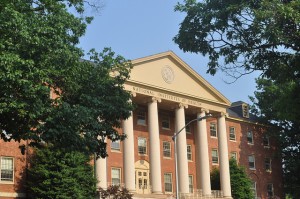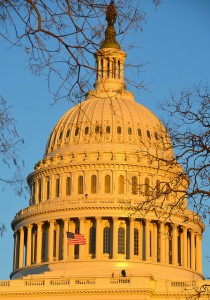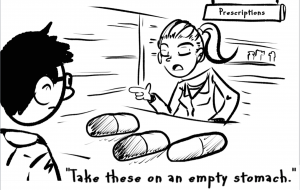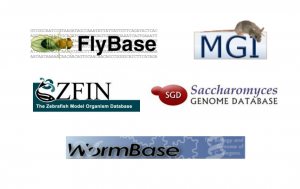Enter your address to receive notifications about new posts to your email.
Policy & Advocacy
-
Policy & Advocacy
NSF puts collections and instrument development programs on hiatus
The National Science Foundation’s Directorate for Biological Sciences (BIO) has put two funding programs on hiatus, pending an evaluation of the “long term resource needs and research priorities” within the directorate. The suspended programs are both within BIO’s Division of Biological Infrastructure (DBI). Collections in Support of Biological Research (CSBR) The Collections in Support of Biological…
-
Policy & Advocacy
Smoke and MIRAs
This guest post from Sue Jinks-Robertson describes a personal experience with the NIGMS MIRA program. If you wish to share your perspective on MIRA or any other topic of interest to the GSA community, please consider authoring a guest post; send your ideas to blog@genetics-gsa.org. Contributed by guest author Sue Jinks-Robertson I’ve been on…
-
Policy & Advocacy
Mixed feelings about MIRA
GSA has been hearing from our community about their experience with the Maximizing Investigators’ Research Award (MIRA) program from NIH’s National Institute of General Medical Sciences (NIGMS). Although there’s almost universal support for the goals of the program—providing a greater degree of flexibility and stability for investigators—and for the application and review process, there is significant disagreement…
-
Policy & Advocacy
Steering the biomedical workforce away from the iceberg
In 2014, Bruce Alberts, Marc Kirschner, Shirley Tilghman, and Harold Varmus published an article in PNAS detailing the pitfalls and challenges of the structure of the biomedical workforce. Though many have written about and discussed these problems before, people seemed to pay attention to the conversation this time. Scientists at all stages of their careers…
-
Policy & Advocacy
NIH leadership emphasizes commitment to basic science
NIH Director Francis Collins, along with the leaders of NIH’s institutes, centers, and offices, have written a letter emphasizing their continuing commitment to basic science. Despite past assurances to this effect (e.g., Collins 2012), the NIH leadership is concerned that the community may feel that NIH has moved away from basic research. The letter, which was published…
-
Policy & Advocacy
Policy Points: Where do we send the bill?
FY 2017 Budget Process Underway President Obama submitted his budget request for Fiscal Year (FY) 2017 to congress at the beginning of the month, proposing funding levels for the National Institutes of Health (NIH) to accommodate a nearly $1 billion increase in mandatory spending to fund special projects like the BRAIN, Precision Medicine, and Cancer Moonshot…
-
Policy & Advocacy
Ask your Representative to support research in 2017
With the Fiscal Year (FY) 2016 omnibus bill signed into law and in effect, Congress now shifts its attention to the budget for FY 2017, which begins on October 1. To aid in this process, the House Appropriations Committee has asked individual Representatives to submit “Programmatic Requests.” These requests are used by the Committee to identify what programs are…
-
Policy & Advocacy
Policy Points: from the farm to the moon
Following the much appreciated budget increases for scientific agencies in December, science and health advocates alike were ecstatic at the mention of a “cancer moonshot” in President Obama’s final State of the Union Address to the House of Representatives. It is reported that the White House plans to request $755 million for cancer research funding as…
-
Policy & Advocacy
Real nice
A worrisome habit is arising among some American politicians. They don’t like what scientists conclude about some supposedly controversial topic so they try to defund the research. A good example of this tactic is climate change—in recent months, we’ve heard of efforts to limit NASA, EPA, NOAA, and NSF funding for research in geoscience. But…
-
Policy & Advocacy
FASEB releases report on enhancing research reproducibility
In response to concerns that have been raised about reproducibility in biomedical research, the Federation of American Societies for Experimental Biology (FASEB) invited experts, delegates from its member societies (including GSA), and representatives from the National Institutes of Health (NIH), National Science Foundation (NSF), and other stakeholders to discuss general factors that may impede the ability to…
-
Policy & Advocacy
An uncertain future for biological databases
An article in the most recent issue of Science highlights a growing concern about the continued support of the biological databases on which our community depends. Indeed, 2015 GSA President Jasper Rine was quoted as saying these resources are “critical for our daily life as geneticists and biomedical researchers.” Many of the model organism databases (MODs) used…











